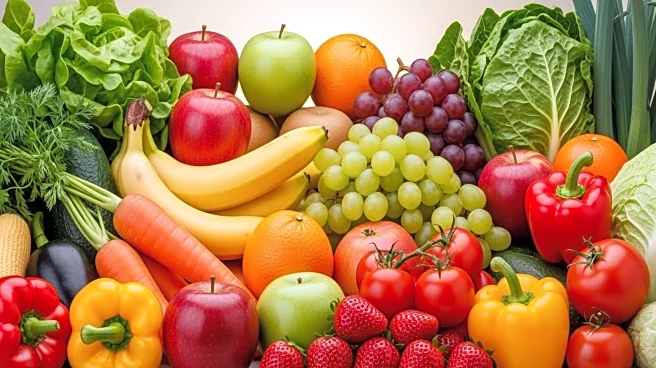What's Happening?
The agricultural fumigants market is experiencing a promising outlook, driven by increasing global food demand and the need for effective pest management solutions. Fumigants, which are chemical substances used to eradicate pests, pathogens, and weeds,
play a crucial role in maintaining healthy crop yields. The market is expected to grow at a compound annual growth rate (CAGR) of 5.00% from 2025 to 2032. This growth is attributed to technological advancements in formulation and application techniques, which enhance the efficacy of fumigants. Additionally, there is a growing awareness of sustainable agricultural practices, leading to a shift towards environmentally friendly fumigants. Key players in the market include DuPont, FMC Corporation, BASF, and Syngenta, who are focusing on innovation and sustainability to meet evolving agricultural challenges.
Why It's Important?
The growth of the agricultural fumigants market is significant for several reasons. As global food demand continues to rise, effective pest management becomes increasingly critical to ensure food security. The shift towards sustainable practices and environmentally friendly fumigants reflects a broader trend in agriculture towards reducing chemical use and minimizing environmental impact. This trend is likely to influence regulatory policies and consumer preferences, potentially leading to increased adoption of biopesticides and precision agriculture technologies. Companies that can innovate and adapt to these changes stand to gain a competitive advantage, while those that fail to do so may struggle to maintain market share.
What's Next?
The agricultural fumigants market is poised for transformation as stakeholders adapt to emerging trends. Companies are expected to invest in research and development to create safer and more effective fumigant options. Regulatory changes may further drive innovation, as stricter controls on chemical pesticides encourage the development of alternative solutions. The integration of artificial intelligence and data analytics in fumigation processes could enhance efficiency and reduce costs, offering new opportunities for market growth. As consumer awareness of sustainable practices increases, the demand for organic and sustainably produced foods is likely to rise, influencing farmers' fumigation practices.
Beyond the Headlines
The shift towards sustainable fumigation practices has deeper implications for the agricultural industry. It highlights the ethical responsibility of companies to prioritize environmental health and safety. The adoption of biopesticides and precision agriculture technologies could lead to long-term shifts in farming practices, promoting a more sustainable and resilient agricultural system. This transformation may also influence cultural perceptions of agriculture, as consumers become more conscious of the environmental impact of their food choices.















